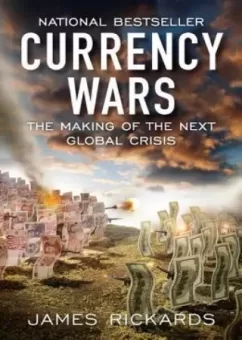State Capital
Globalization was not the only geopolitical phenomenon developing in the late twentieth century; state capitalism was another. State capitalism is the in- vogue name for a new version of mercantilism, the dominant economic model of the seventeenth through nineteenth centuries. Mercantilism is the antithesis of globalization. Its adherents rely on closed markets and closed capital accounts to achieve their goal of accumulating wealth at the expense of others.
Classical mercantilism rests on a set of principles that seem strange to modern ears. The main forms of wealth are tangible and found in land, commodities and gold. The acquisition of wealth is a zero-sum game in which wealth acquired by one nation comes at the expense of others. International economic conduct involves granting advantages to internal industries and imposing tariffs on foreign goods. Trading is done with friendly partners to the exclusion of rivals. Subsidies and discrimination are legitimate tools to achieve economic goals. In its most succinct form, the mercantilist takes the view that trade is war. Success in mercantilism was measured by the accumulation of gold.
Although mercantilism had its roots in the Hundred Years’ War of the fourteenth and fifteenth centuries, it reached new heights with the formation of the East India Company in England in 1600 and the Dutch East India Company in the Netherlands in 1602. While these companies operated as private stock companies, they were given wide-ranging monopolies supported by the power to raise armies, negotiate treaties, coin money, establish colonies and act in the place of the government in dealings in Asia, Africa and the Americas. Scholars have focused on the private features of these firms, such as stock ownership, dividends and boards of directors. However, given their quasi-sovereign powers, they are more properly understood as extensions of the sovereign with private owners and managers. This arrangement bears comparison to regional Federal Reserve Banks in the United States, which are privately owned but act as a financial arm of the government.
It was only in the late eighteenth century, with the industrial revolution and the publication of The Wealth of Nations by Adam Smith, that a more modern form of laissez-faire capitalism with private ownership and banking arose. Yet through the twentieth century, despite the success of private enterprise, state-controlled businesses still prevailed in societies dominated by communists, fascists, oligarchs and many other antidemocratic forces.
What we today take for granted as the dominant financial paradigm of private capitalist free enterprise and entrepreneurship is, in fact, exceptional in most times and most places. Private enterprise may have the greatest claim to efficiency and wealth creation, but these are not universally held values. Capitalism’s claim to dominance in the future of global trade, finance and technology would seem to have no stronger historical basis than the claims of monarchy, imperialism, communism and other systems in their day.
Companies that appear private but have nearly unlimited state resources behind them, such as China Petroleum and Chemical Corporation (known as Sinopec), are able to bid on natural resources, buy competitors and invest in equipment without regard to short-run financial impacts. They are able to gain market share by selling below cost. They do not have to worry about losing access to capital markets in times of economic distress. Such entities need not fear investigation by their own government if they bribe dictators and their troops to protect their interests. This neomercantilism is the power of the state dressed up as a modern corporation: old wine in new bottles.
Exemplars of this new breed of enterprise are sovereign wealth funds, national oil companies and other state-owned enterprises. These entities are plentiful in Russia, China, Brazil, Mexico and other emerging markets. Western Europe also has its state-owned megacorporations. EADS, the European aircraft, defense and space giant, has publicly traded shares but is majority owned by a consortium that includes French and Spanish government holding companies, a Russian state-controlled bank and Dubai Holding. The Italian oil company Eni, owned 30 percent by the state, is another example—just one among many. Americans are tempted to throw stones at these state-owned entities and call them unfair competition, only to be reminded that in 2008 the U.S. government bailed out Citibank, GE and Goldman Sachs. The United States has its own state-sponsored enterprises; it is really not that different.
To understand globalization and state capitalism, a different, non-U.S. perspective is needed. Intelligence analysts are trained to avoid “mirror imaging,” which is the tendency to assume that others see the world as we do. In trying to discern the intentions of adversaries, mirror imaging can be a fatal flaw. Threat analysis requires the analyst to put herself in the shoes of Russians, Chinese, Arabs and others to understand not just the differences in language, culture and history but also the differences in motivation and intent. When Russian leaders think of natural gas, they see not only export revenue but also a stranglehold on the industrial economy of Europe. When Chinese strategists consider their holdings of U.S. government bonds, they understand they have a weapon that can either destroy the U.S. economy or blow up in their faces. When Arab rulers move down the path to modernity, they are acutely aware that they are placing themselves in a reactionary and religious vise that can crush them. A twenty-first-century Grand Tour through Dubai, Moscow and Beijing will help us to see ourselves the way billions of Arabs, Asians and Russians see us—and to understand that the dollar’s destiny is not entirely in American hands.
Pages: 1 2 3 4 5 6 7 8 9 10 11 12 13 14 15 16 17 18 19 20 21 22 23 24 25 26 27 28 29 30 31 32 33 34 35 36 37 38 39 40 41 42 43 44 45 46




